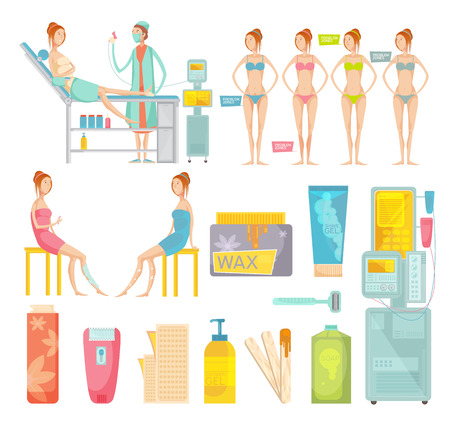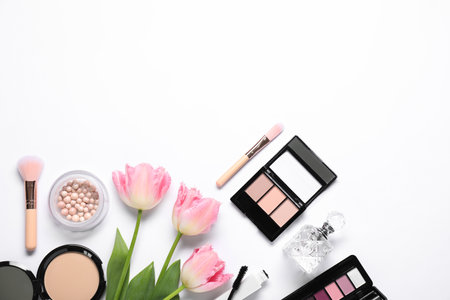Understanding Refillable Beauty: What It Means for British Consumers
Refillable beauty has swiftly become a buzzword in the world of grooming and skincare, but what does it truly mean for consumers across the UK? At its core, refillable beauty refers to products—be it moisturisers, shaving gels, or colognes—that are designed to be replenished rather than replaced. This innovative approach is reshaping the landscape of men’s grooming and personal care, encouraging British blokes to rethink their daily routines through a more sustainable lens.
The trend towards refillable products aligns seamlessly with the UK’s increasing commitment to sustainability and environmental consciousness. With growing concerns over single-use plastics and unnecessary packaging waste, refillable beauty offers a practical solution that resonates strongly with eco-minded individuals. For many British men, choosing a refillable razor or beard oil isn’t just about looking sharp—it’s about making choices that reflect personal values and contribute to broader efforts to reduce one’s environmental footprint.
Moreover, refillable beauty products often come with a premium feel, catering to those who appreciate quality in their grooming regimen while still prioritising ethical consumption. Whether you’re picking up a smartly packaged aftershave from your local Boots or browsing boutique brands online, the move towards refills signals a shift in how we view our daily essentials—not merely as disposable commodities but as investments in both style and sustainability.
2. The High Street Experience: Where Can You Find Refillable Options?
Across the UK, the accessibility of refillable beauty products on the high street varies significantly by location and retailer. For many British men interested in eco-friendly grooming and skincare, finding refillable options can still be a challenge. While some major department stores in London, Manchester, and Birmingham have started to introduce refill stations for popular brands, these initiatives are far from universal. Local independent shops may offer niche or artisanal refillable solutions, but their reach often remains limited to larger cities or more progressive urban neighbourhoods.
Refillable Availability on the UK High Street
| Retailer Type | Example Locations | Common Refillable Brands | Accessibility |
|---|---|---|---|
| Major Department Stores | Selfridges (London, Manchester), John Lewis (nationwide) | Aesop, Kiehl’s, L’Occitane | Moderate – concentrated in city centres |
| High Street Chains | Boots, Superdrug (nationwide) | The Body Shop, Garnier | Limited – select branches only |
| Independent Boutiques | Bristol, Brighton, Edinburgh | Balmonds, UpCircle Beauty | Poor – mostly urban or affluent areas |
| Online Retailers with Collection Points | N/A (online ordering + local pickup) | Beauty Kitchen, REN Skincare | Good – but less tangible for in-person shoppers |
The Urban-Rural Divide in Refillable Choices
The disparity between urban and rural areas is particularly stark. Men living outside large towns or cities frequently report fewer opportunities to access refillable grooming products. Independent stores leading the refill revolution are largely concentrated in metropolitan hubs, while rural high streets remain dominated by traditional single-use packaging.
The Role of Local Initiatives and Community Shops
Certain community-driven projects—such as zero waste shops or local markets—do offer refill stations for shaving creams, beard oils and moisturisers. However, these remain exceptions rather than the rule across much of the UK. As such, while refillable beauty is making progress on British high streets, true accessibility is still very much a postcode lottery.

3. Inclusivity Concerns: Who’s Being Left Out?
While the concept of refillable beauty products is gaining momentum across the UK, there are growing concerns about whether these schemes truly cater to everyone. On paper, refillable systems promise a sustainable solution for all British consumers, but reality often tells a different story. For starters, geographical location plays a significant role in accessibility. Many refill stations and eco-friendly boutiques are concentrated in major cities like London, Manchester, and Edinburgh, leaving those in rural communities or smaller towns with fewer options. This urban-centric approach inadvertently sidelines people living outside metropolitan areas.
Gender inclusivity also raises important questions. While refillable schemes often target women through marketing campaigns focusing on skincare and cosmetics, British men—especially those interested in grooming and personal care—may find fewer tailored options available. The male grooming sector is growing, yet the range of refillable shaving gels, beard oils, and other men’s essentials remains limited compared to women’s offerings. This gap can make it challenging for men who want to embrace more sustainable routines without sacrificing choice or convenience.
Furthermore, socioeconomic factors cannot be ignored. Refillable products tend to carry higher upfront costs or require customers to travel further to access refilling stations—an unrealistic expectation for lower-income families or individuals juggling multiple jobs. Likewise, some communities—such as ethnic minorities and older generations—might not feel represented by current branding or may lack information about how refill schemes work. Language barriers and digital exclusion could further alienate certain groups from participating fully.
Ultimately, while refillable beauty is a step towards sustainability, there is still much work to do to ensure that all Brits—regardless of gender, background, or postcode—can benefit equally from these initiatives.
4. Price Point and Practicality: Is Refillable Beauty Truly Affordable?
When it comes to the appeal of refillable beauty, cost is a key concern for most UK consumers. While the concept of refilling grooming essentials or skincare products seems eco-friendly, the price tag attached can be a real dealbreaker for many blokes looking to upgrade their routine without breaking the bank. To better understand whether refillable beauty is genuinely accessible, it’s essential to compare initial outlays and long-term costs against traditional single-use options.
Initial Investment vs Long-Term Savings
The first thing you’ll notice with refillable products is the upfront cost. Typically, buying a refillable container—whether it’s a sleek shaving cream dispenser or a luxury moisturiser bottle—comes at a premium compared to picking up a standard product from Boots or Superdrug. However, the idea is that over time, refilling becomes more economical as you only pay for the product itself rather than new packaging each time.
Price Comparison: Refillable vs Traditional Products
| Product Type | Traditional (Single-Use) | Refillable (Initial Purchase) | Refill Pack Cost |
|---|---|---|---|
| Face Wash | £5 – £10 | £15 – £25 (inc. case) | £6 – £8 per refill |
| Moisturiser | £8 – £20 | £25 – £40 (inc. jar) | £10 – £15 per refill |
| Shampoo | £3 – £7 | £12 – £18 (inc. bottle) | £5 – £7 per refill |
The Realities for Everyday Consumers in the UK
The table above reveals that although the ongoing cost per use may drop with refills, that initial investment can be off-putting for those on a tight budget. In cities like London or Manchester, where sustainable shops are more common, consumers may have easier access—but in rural areas, options are limited, sometimes pushing prices even higher due to shipping or scarcity.
Bargain or Blowout?
If you’re used to grabbing your grooming gear during your weekly supermarket shop, switching to refillables might feel like a leap. For students, young professionals or families watching their pennies, these price points could make refillable beauty seem exclusive rather than inclusive—unless brands and retailers find ways to lower barriers through starter kits or loyalty discounts.
5. Urban vs. Rural Divide: Is Access Even Across the UK?
When it comes to refillable beauty products, a noticeable gap exists between metropolitan centres such as London, Manchester, and Birmingham, and the UKs smaller towns or rural communities. In cities, consumers are spoilt for choice—major department stores, niche grooming boutiques, and eco-conscious salons frequently offer refill stations for everything from men’s moisturisers to beard oils. These urban hubs benefit from higher consumer demand, greater foot traffic, and often better infrastructure for sustainability initiatives.
However, outside these metropolitan bubbles, availability drops significantly. In many rural areas and smaller towns, refillable grooming products are much harder to come by. Supermarkets and local chemists may stock only a limited range of refill packs, if any at all. Independent barbershops in these regions might not have the resources or supplier networks to implement refilling schemes, despite growing interest among their clientele.
This urban-rural divide is further exacerbated by logistical challenges. Distributing bulk refills or operating sustainable packaging return systems can be costly and complex across vast countryside stretches or less densely populated regions. As a result, residents outside major cities often face higher prices, reduced choices, or must travel considerable distances to access refillable beauty solutions.
Ultimately, while city dwellers enjoy both the convenience and trendiness of refillable grooming options—including some exclusive launches—those in more remote parts of the UK remain underserved. Addressing this disparity will require industry-wide collaboration: brands must consider new delivery models and retail partnerships that genuinely make sustainable grooming accessible to every British man—regardless of postcode.
6. Brand Initiatives and Local Solutions: Who’s Leading the Way?
When it comes to refillable beauty, a handful of brands are setting the standard across the UK, making strides in accessibility while championing sustainability. Amongst high street favourites, L’Occitane has led with refill pouches for everything from hand washes to shampoos, available at nearly every major city centre. The Body Shop is another staple, recently expanding their refill stations into more than 500 stores nationwide—making it easier than ever for British gents to top up essentials like shower gels and haircare without single-use plastic.
Luxury grooming also isn’t left behind. Kiehl’s offers in-store bottle refills on select skincare ranges, encouraging customers to bring back their empties. For those seeking homegrown heroes, look no further than Neal’s Yard Remedies, an iconic British brand with refill stations in Covent Garden and select boutiques from Manchester to Edinburgh, catering to anyone after natural, eco-friendly solutions for beard oils or facial cleansers.
Beyond big names, independent barbershops are stepping up as local pioneers in refillable grooming. Murdock London, with locations in Shoreditch and Soho, has introduced refillable cologne and shaving oil options—ideal for blokes who want a sharp look with less waste. Up north, The Brighton Beard Co. allows customers to return glass bottles for discounted refills of their popular beard balms and oils—a move that not only supports sustainability but also builds a loyal local clientele.
Other notable mentions include Grüum, a Manchester-based startup focused on men’s skincare and shaving products, offering subscription refills delivered nationwide. Meanwhile, independent shops like Bottle Refill Store in Bristol and Earthwise Refill in Glasgow stock male grooming staples—from shampoo bars to post-shave tonics—in bulk dispensers, fostering a community-led approach to accessible refills.
The growing presence of these initiatives demonstrates how both established brands and grassroots businesses are paving the way for inclusive access to refillable beauty across the UK. With a blend of nationwide rollouts and hyper-local solutions, British men now have more opportunities than ever to adopt sustainable grooming habits—whether they’re popping into a flagship store or their favourite neighbourhood barbershop.
7. Future Outlook: What Needs to Change for True Accessibility?
As refillable beauty gradually gains traction across the UK, it’s clear that achieving genuine accessibility and inclusivity requires more than just good intentions. To ensure refillable options are available to every British consumer—regardless of location, background, or budget—the industry must embrace a multifaceted transformation.
Widening Distribution Networks
One of the most significant barriers is geographic availability. Currently, refill stations and sustainable beauty initiatives are concentrated in metropolitan hubs like London or Manchester, leaving rural communities and smaller towns underserved. For refillable beauty to become truly mainstream, brands need to expand their distribution networks and collaborate with local retailers, supermarkets, pharmacies, and even barbershops. This would ensure that everyone—from busy city professionals to countryside gents—has convenient access to refills.
Affordable Pricing Structures
Refillable beauty is often associated with premium pricing, which can be off-putting for consumers on a tight budget. The industry should explore cost-effective packaging innovations and scalable solutions that drive prices down without sacrificing quality. Supermarkets and high-street chains could play a pivotal role by stocking affordable refill products alongside traditional grooming essentials, making sustainable choices more accessible for all wallets.
Cultural Shift in Male Grooming
For men in particular, there remains a lingering perception that eco-friendly beauty is not “masculine” or relevant to everyday grooming routines. To overcome this barrier, brands must tailor their messaging—highlighting the practical benefits of refillables such as convenience and long-term savings—and create masculine packaging designs that appeal to modern British gents. Collaborations with local influencers and barbers could help normalise sustainable habits within men’s grooming culture.
Inclusive Design and User Experience
Accessibility also means catering to all abilities. Refillable systems should be designed with user-friendliness in mind—easy-to-use pumps, tactile labels for those with visual impairments, and straightforward instructions. Brands that champion inclusive design will make sustainability a realistic option for every member of society.
Industry-Wide Collaboration
No single brand can bring about these changes alone. Industry-wide collaboration is essential: from sharing best practices and standardising refill formats, to lobbying for government incentives that support sustainable business models. By working together—and listening to feedback from diverse British consumers—the sector can foster an environment where refillable beauty is not just an ethical choice but an accessible one too.
The future of refillable beauty in the UK depends on proactive adjustments at every level—from product development through to retail partnerships and cultural messaging. Only then can we hope for a landscape where refilling your favourite moisturiser or beard oil is as commonplace as popping into your local shop—and where every Briton has the opportunity to make sustainable choices without compromise.


